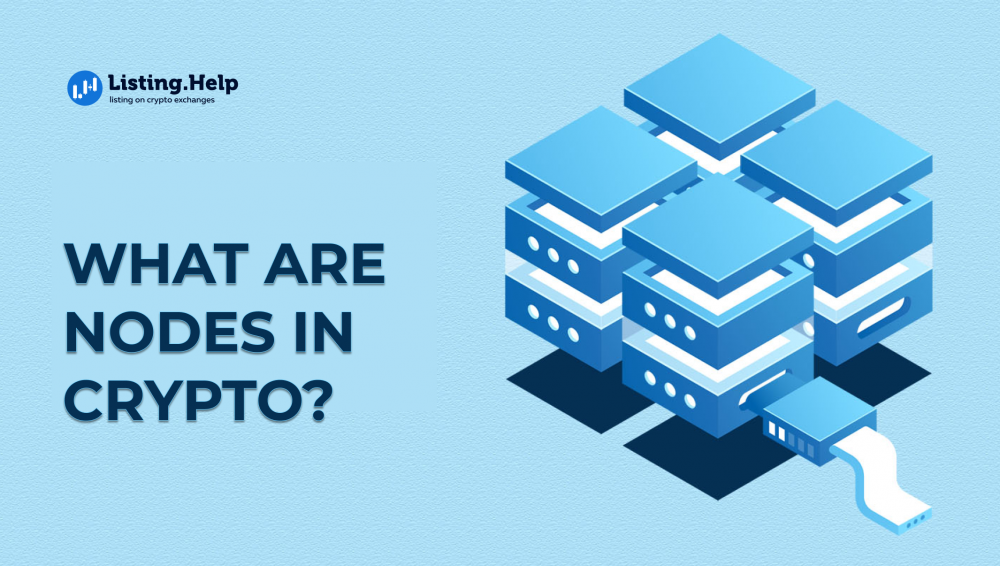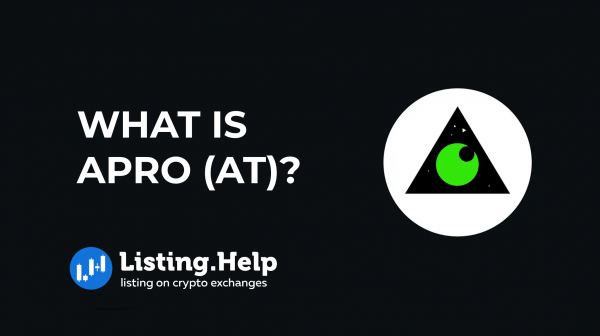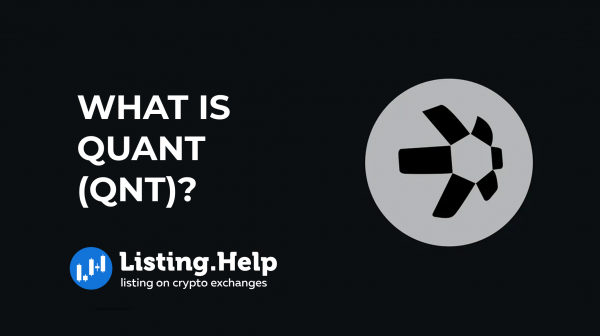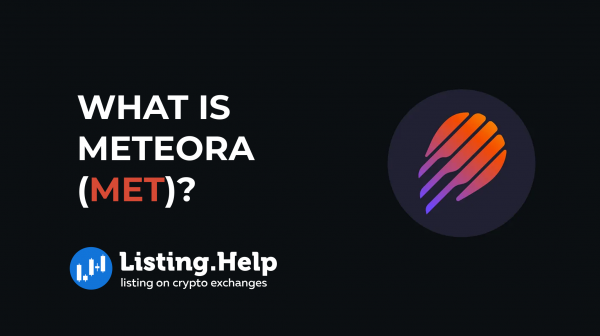What are Nodes in Crypto? Types of Blockchain Nodes
 November 22, 2023
November 22, 2023 Updated: January 27 2025, 07:24
Updated: January 27 2025, 07:24
LEAVE A REQUEST
Launching your own token project? Our experts are ready to help with listing on exchanges, market making, marketing and other solutions
SUBMIT APPLICATIONThe term ‘node’ often refers to a specific point within a network that plays a crucial role in maintaining data flow, ensuring seamless communication throughout the network.
In the realm of blockchain, a node has a similar function. It is integral in enabling all participants of a blockchain project to access and share the same information regarding every transaction recorded in the ledger.
This discussion aims to clarify the role of a node. We’ll delve into the features of these essential components in blockchain technology and explore their operational mechanisms.
Additionally, it’s important to note that nodes can also be leveraged for passive earnings in cryptocurrency. By participating as a node in certain blockchain networks, individuals can earn rewards or fees, contributing to the decentralization and security of the network while generating income.
What Is a Crypto Node?
A crypto node is essentially a computer that connects to and becomes a part of a blockchain network. On most blockchain systems, each node is an independent computer that holds the entirety of the blockchain data, also known as a distributed ledger. The distributed nature of these nodes allows them to cross-verify each other, ensuring the integrity of the network.
These nodes play a crucial role in validating and recording new transactions, and they distribute this information across the network autonomously, without needing a centralized authority.
The security of the system increases with the number of nodes. This is because to manipulate the blockchain, one would need to gain control over more than half of the nodes (attack 51%), a feat that becomes increasingly difficult in larger networks.
What exactly does a Blockchain Node do?
At its core, it serves as a repository for the data necessary for the blockchain’s operation, holding the entire ledger and all its transactions. Another vital function is to facilitate communication between nodes, ensuring they all have an identical copy of the ledger. This synchronization is essential for maintaining a uniform blockchain across the network.
Additionally, crypto nodes have responsibilities such as validating blockchain transactions and filtering out those that don’t comply with the network’s rules. They also assist new nodes by providing them with a copy of the blockchain.
In essence, crypto nodes are the backbone of blockchain operations, enabling the network to function in a decentralized manner. Unlike traditional finance systems, public blockchains depend on a collective approach, with individuals worldwide operating these nodes.
How to Set Up Your Own Node?
A node, often called a “client,” operates as a device that maintains an up-to-date version of a blockchain, updating it with every new transaction.
To set up a node, the following are required:
- A suitable device with adequate storage space. The exact storage needs vary based on the type of node and the specific cryptocurrency.
- Software to facilitate synchronization with the rest of the blockchain network.
- Registration of the node, usually through a cryptocurrency wallet and sometimes involving a deposit of tokens.
- The capability to gather data and disseminate it across the network.
For those interested in running a Bitcoin node, here’s what’s needed:
- A device with a recent operating system.
- A minimum of 7 gigabytes of free storage and 2 gigabytes of RAM.
- A strong internet connection, with the node running for at least 6 hours daily.
As of the latest data, there are almost 16,000 Bitcoin nodes. This number can be verified through an up-to-date list of reachable Bitcoin nodes.
Running a node is open to virtually anyone. Typically, those who are deeply invested in a cryptocurrency, either financially or ideologically, choose to run nodes. This involvement allows them to support the crypto project more directly and understand better how their investment might appreciate over time.
It’s important to note that not all nodes are identical. Their functionalities and requirements can differ based on the category of the node and the specifics of the blockchain project. This diversity in nodes contributes to the robustness and decentralization of the blockchain network.
Nodes, Miners, Validators: What’s the Difference?
In the cryptocurrency world, there’s often confusion between the terms ‘nodes,’ ‘miners,’ and ‘validators.’ It’s essential to distinguish these roles clearly, especially for those investing in this space.
Miners are specialized computer systems that add new transaction blocks to a blockchain. The process involves solving complex mathematical problems, which consumes significant energy. This mechanism, particularly in proof-of-work blockchains like Bitcoin, ensures network security by making it prohibitively expensive to attempt system manipulation.
It’s crucial to understand that while all miners are nodes, not all nodes are miners. Anyone can operate a crypto node to contribute to the consensus mechanism of a blockchain like Bitcoin, without engaging in mining activities. This participation helps maintain the network’s functionality and integrity.
Moreover, the roles differ across various blockchain architectures. In proof-of-stake networks, for instance, nodes are typically run by validators, not miners. Validators are responsible for confirming transactions and maintaining the blockchain’s continuity. However, similar to proof-of-work systems, one can run a node in a proof-of-stake network without actively validating transactions. Therefore, nodes and validators, like nodes and miners, are distinct entities with different functions within the blockchain ecosystem.
Types of Crypto Nodes
Full Nodes
A Full Node maintains a complete copy of the network’s ledger. These nodes are fundamental to most blockchain networks, as they store the entire history of the chain and communicate with other full nodes. They are also responsible for supplying new nodes with a copy of the blockchain, making them the backbone of the network.
Supernodes
Supernodes are a specialized type of Full Node in the blockchain network. Their defining characteristic is their public visibility. These nodes not only maintain a complete copy of the blockchain but also actively communicate and share information with any other node that connects to them. In essence, a supernode serves as a redistribution hub, functioning both as a data repository and a facilitator of communication within the network.
To perform their role effectively, supernodes are typically operational 24/7 and maintain numerous connections to various nodes worldwide. They play a crucial role in disseminating the blockchain’s history and transaction data. Due to this intensive task of transmitting data across multiple nodes, a supernode usually requires more computational resources and a more robust internet connection than a standard, non-public Full Node.
Miners’ Nodes
Miner Nodes operate in proof-of-work blockchains. Their role is to verify transactions and append them to the blockchain. This process demands substantial computational power to solve intricate puzzles. In return for their efforts, miner nodes earn cryptocurrency rewards.
Validator Nodes
Validator Nodes are the counterparts of miner nodes in proof-of-stake networks. Like miner nodes, they validate transactions and form new blocks. However, instead of solving computational challenges, validators are selected based on the amount of cryptocurrency they stake in the system. Similar to miners, they receive rewards for block creation.
Lightweight or SPV clients
Light Nodes, or SPV (Simplified Payment Verification) clients, operate differently. These nodes don’t store the entire blockchain. Instead, they download only the block headers, which means they require much less storage space. Their primary function is to authenticate transactions in the blockchain using SPV. It’s noteworthy that not all blockchains utilize light nodes. They are particularly common in blockchains with limited storage capacity per block, such as Bitcoin.
Conclusion
Nodes are vital for the security and functioning of blockchain and cryptocurrency networks. They validate transactions and maintain the network’s decentralized structure. Despite facing challenges like resource constraints and security threats, effective node management is crucial. Running a node requires technical skills and a commitment to the network’s health, offering a chance to contribute and earn rewards.

Learn more about blockchain and cryptocurrencies by visiting our blog at Listing.Help. Our blog provides insights and updates on the latest trends in the crypto world, catering to both beginners and seasoned enthusiasts.







 February 23, 2026
February 23, 2026 








